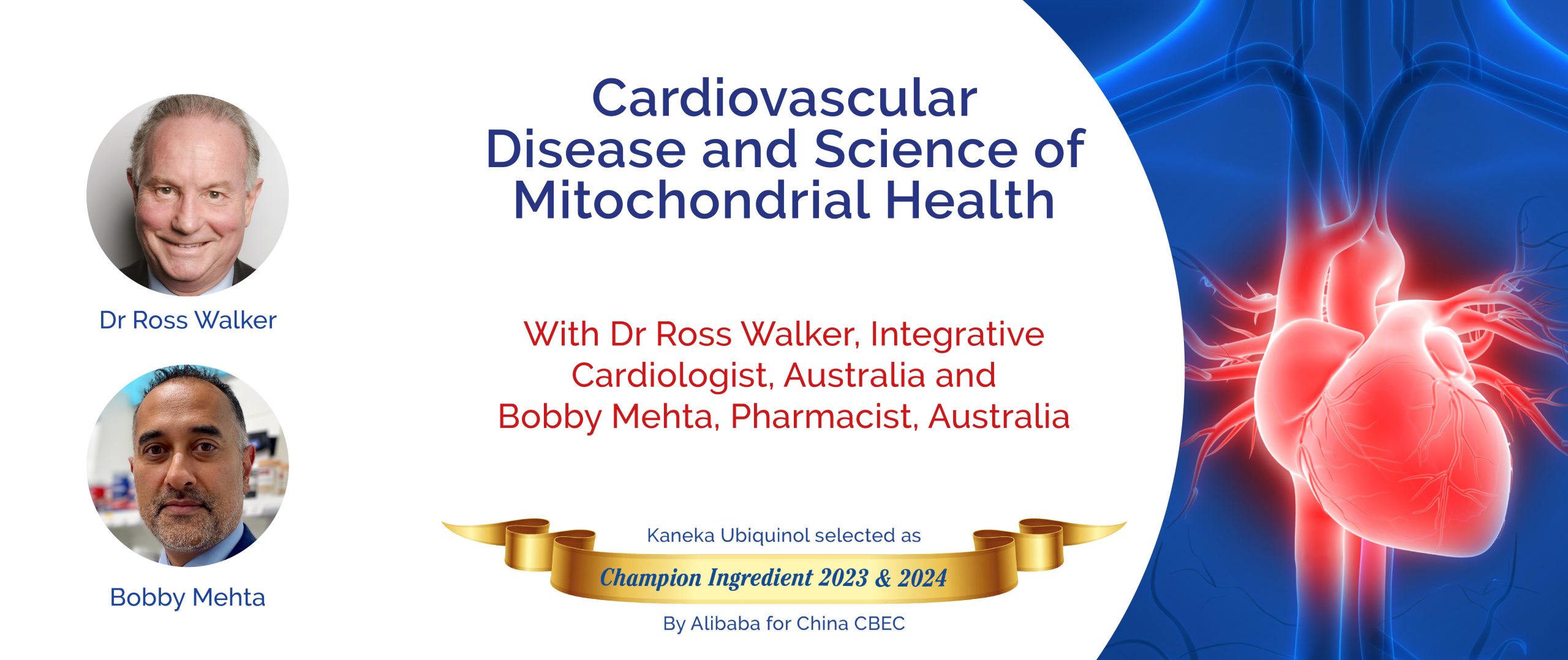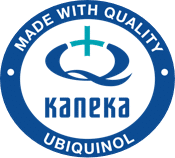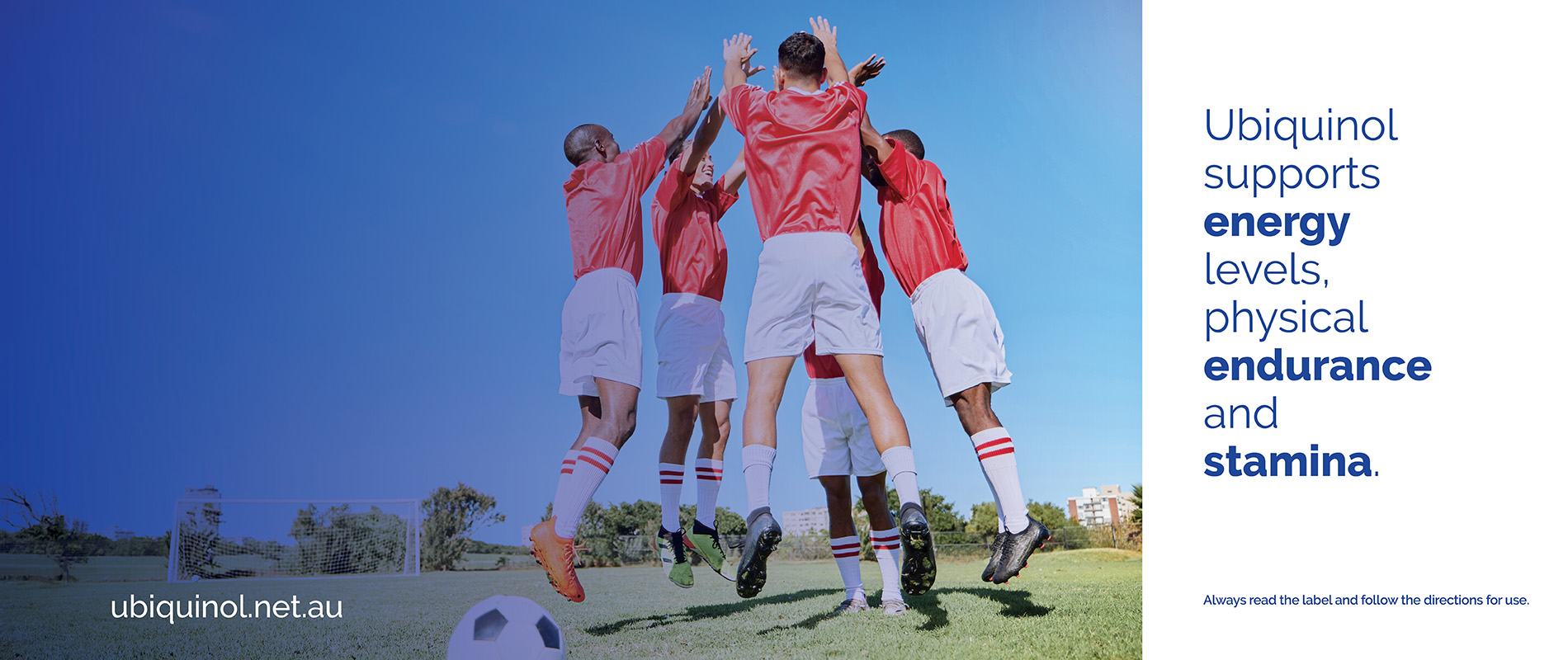
Why Antioxidants are Important for Men
Nov 2021Recent Article
Men’s Health Awareness Month
November is men’s health awareness month and the ideal time for men from all walks of life to stop and take stock of their general health and wellness, with a particular focus on embracing a healthy diet.
Food fuels the body and eating the right combination of nutrients is vital to help support optimal cell and organ function. However, research has shown that women are about 50% more likely than men to eat healthier diets [1]. In fact, women tend to eat fruits and vegetables 4.9 times per day, compared to that of men who eat fruit and vegetables 4.2 times per day [2].
Usually, a men’s approach towards nutrition is uncomplicated and predominantly focuses on the pleasure of eating [3], relying mainly on meat protein [4]. A new study found that the strong association of meat and masculinity [5] has created meat-based peer pressure on men, potentially preventing them from enjoying fruits and vegetables [6] in social settings.
However, vegetables and fruits are an important part of a healthy diet, and variety is as important as quantity especially when it comes to antioxidants, which are mainly found in plant-based foods.
An Introduction To Antioxidants
Antioxidants are defined as natural substances created by the human body that may prevent or delay some types of cell damage as a result of oxidative deterioration [7]. Oxidation is a natural process that occurs when oxygen is metabolised in our bodies. This creates unstable molecules called ‘free radicals’, which take electrons from other molecules, causing damage to our cells [8]. Free radicals can be formed while exercising and when the body converts food into energy. However, the body can also be exposed to free radicals from a variety of environmental sources, such as cigarette smoke, air pollution, and sunlight.
Even though our body is designed to cope with some of these reactive species, and needs them to effectively function [9], there might be a problem when there is an overload of free radicals. Hence, the antioxidants found in certain foods can potentially prevent some of the damage by neutralising the free radicals in our cells.
Antioxidant Sources
Strawberries: The nutritional composition of a strawberry possesses an incredible source of micronutrients, such as minerals, vitamin C, and folates, and non-nutrient elements, such as phenolic compounds. These plant compounds are known for their anti-inflammatory and antioxidant actions [10].
Dark leafy greens: Kale, spinach, and broccoli are rich in vitamins A, B, C, E and K containing an abundance of carotenoids-antioxidants that protect our cells [11] and are part of the antioxidant defence system [12].
Avocados: Fresh avocados contain a diversity of nutrients, protein, and fibre that may help sustain the energy levels throughout the day. They are also one of the few foods that contain significant levels of both vitamins C and E, as well as carotenoid antioxidants [13].
The power of Ubiquinol
Ubiquinol, the active form of Coenzyme Q10, is a powerful lipid antioxidant that prevents the generation of free radicals [14]. Ubiquinol can be found in many foods, including oily fish, organ meats and whole grains. However, it is difficult to achieve the daily recommended dose without consuming excessive amounts of these foods.
If relying only on food sources, we would need to consume more than 14kg of sardines, 60 avocados, or 50 cups of spinach for example, to reach the recommended amount of 100 mg of Ubiquinol per day.
The Ubiquinol that is found naturally in foods also oxidises very quickly and is easily converted to Ubiquinone when it is cooked. To help support the replenishment of your body’s natural Ubiquinol levels, you may wish to speak to a healthcare practitioner to find out if a supplement may be right for you. Please seek advice from a healthcare practitioner to determine if supplementation is right for you. Always read the label.
Always read the label. Use only as directed. If symptoms persist consult your healthcare professional.
[1] Harvard Health. 2021. Mars vs. Venus: The Gender Gap in Health – Harvard Health Publishing – Harvard Health. [online] Available at: <https://www.health.harvard.edu/newsletter_article/mars-vs-venus-the-gender-gap-in-health> [Accessed 11 November 2021].
[2] Martin S. (2002). Surprise! Women eat healthier than men. CMAJ : Canadian Medical Association journal = journal de l’Association medicale canadienne, 167(8), 913.
[3] Ingrid Kiefer, Theres Rathmanner, Michael Kunze,Eating and dieting differences in men and women,The Journal of Men’s Health & Gender, Volume 2, Issue 2, 2005, Pages 194-201, ISSN 1571-8913, https://doi.org/10.1016/j.jmhg.2005.04.010.
[4] American Society for Microbiology. (2008, March 21). Men And Women Have Different Eating Habits, Study Shows. ScienceDaily. Retrieved November 9, 2021 from www.sciencedaily.com/releases/2008/03/080319120318.htm
[5] Love, Hamish J, and Danielle Sulikowski. “Of Meat and Men: Sex Differences in Implicit and Explicit Attitudes Toward Meat.” Frontiers in psychology vol. 9 559. 20 Apr. 2018, doi:10.3389/fpsyg.2018.00559
[6] Royal Geographical Society. 2021. Meat-free men? Men want to eat less meat but avoid vegetarian and vegan food in social settings wit. [online] Available at: <https://www.rgs.org/about/press-and-media/recent-press-releases/meat-free-men-men-want-to-eat-less-meat-but-avoid/https://www.rgs.org/about/press-and-media/recent-press-releases/meat-free-men-men-want-to-eat-less-meat-but-avoid/> [Accessed 12 November 2021].
[7] National Center for Complementary and Integrative Health. 2013. Antioxidants: In Depth. [online] Available at: <https://www.nccih.nih.gov/health/antioxidants-in-depth> [Accessed 12 November 2021].
[8] Betterhealth.vic.gov.au. 2021. Antioxidants – Better Health Channel. [online] Available at: <https://www.betterhealth.vic.gov.au/health/healthyliving/antioxidants> [Accessed 12 November 2021].
[9] Lobo, V., Patil, A., Phatak, A., & Chandra, N. (2010). Free radicals, antioxidants and functional foods: Impact on human health. Pharmacognosy reviews, 4(8), 118–126. https://doi.org/10.4103/0973-7847.70902
[10] Giampieri, F., Alvarez-Suarez, J. M., & Battino, M. (2014). Strawberry and human health: effects beyond antioxidant activity. Journal of agricultural and food chemistry, 62(18), 3867–3876. https://doi.org/10.1021/jf405455n
[11] Ars.usda.gov. 2013. Dark Green Leafy Vegetables : USDA ARS. [online] Available at: <https://www.ars.usda.gov/plains-area/gfnd/gfhnrc/docs/news-2013/dark-green-leafy-vegetables/> [Accessed 12 November 2021].
[12] Wilhelm Stahl, Helmut Sies, Antioxidant activity of carotenoids, Molecular Aspects of Medicine,Volume 24, Issue 6, 2003, Pages 345-351, ISSN 0098-2997,https://doi.org/10.1016/S0098-2997(03)00030-X.
[13] Dreher, M. L., & Davenport, A. J. (2013). Hass avocado composition and potential health effects. Critical reviews in food science and nutrition, 53(7), 738–750. https://doi.org/10.1080/10408398.2011.556759
[14] Saini R. (2011). Coenzyme Q10: The essential nutrient. Journal of pharmacy & bioallied sciences, 3(3), 466–467. https://doi.org/10.4103/0975-7406.84471
You can share this by:
Keep up-to-date with Ubiquinol News
Ubiquinol Headlines
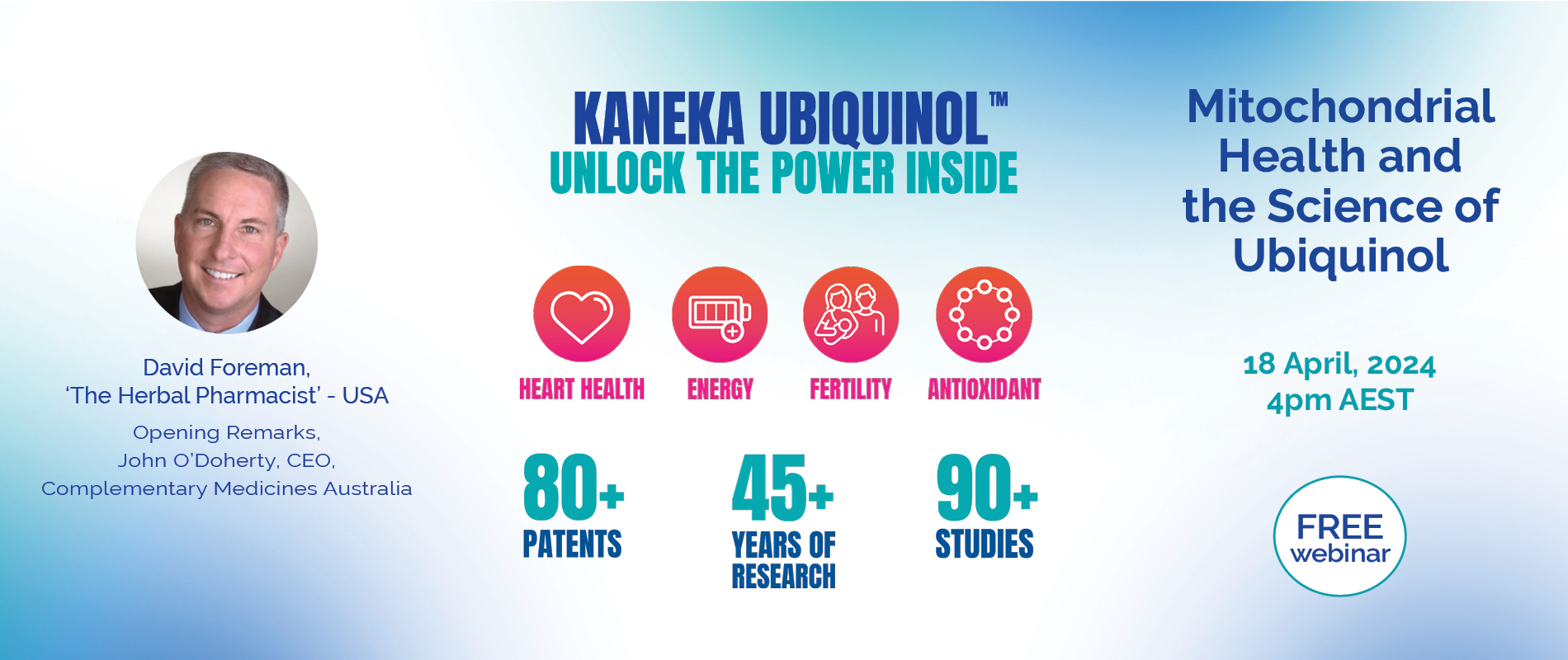
Webinar: Mitochondrial Health and the Science of Ubiquinol
Apr 2024Category: Ageing, Antioxidants, cardiovascular health, chronic fatigue syndrome, Energy, Fatigue, Fertility, Fitness, Health, Health Industry, Heart, Kaneka, Mitochondrial health, Stress, Ubiquinol, wellnessRead More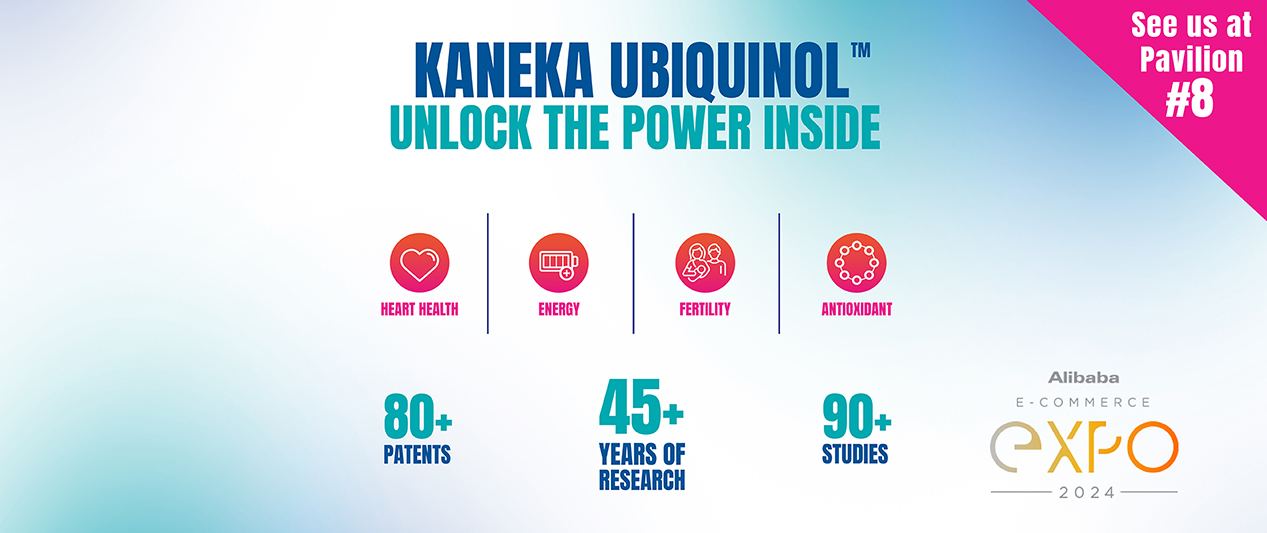
Kaneka Ubiquinol at AliExpo 2024
Mar 2024Category: Ageing, Antioxidants, cardiovascular health, China, Cholesterol, Conferences, Endurance, Energy, Fatigue, Fertility, Fitness, Health, Health Industry, Heart, Immunity, Kaneka, long covid, Mitochondrial health, Nutrition, post pandemic, Stress, UbiquinolRead More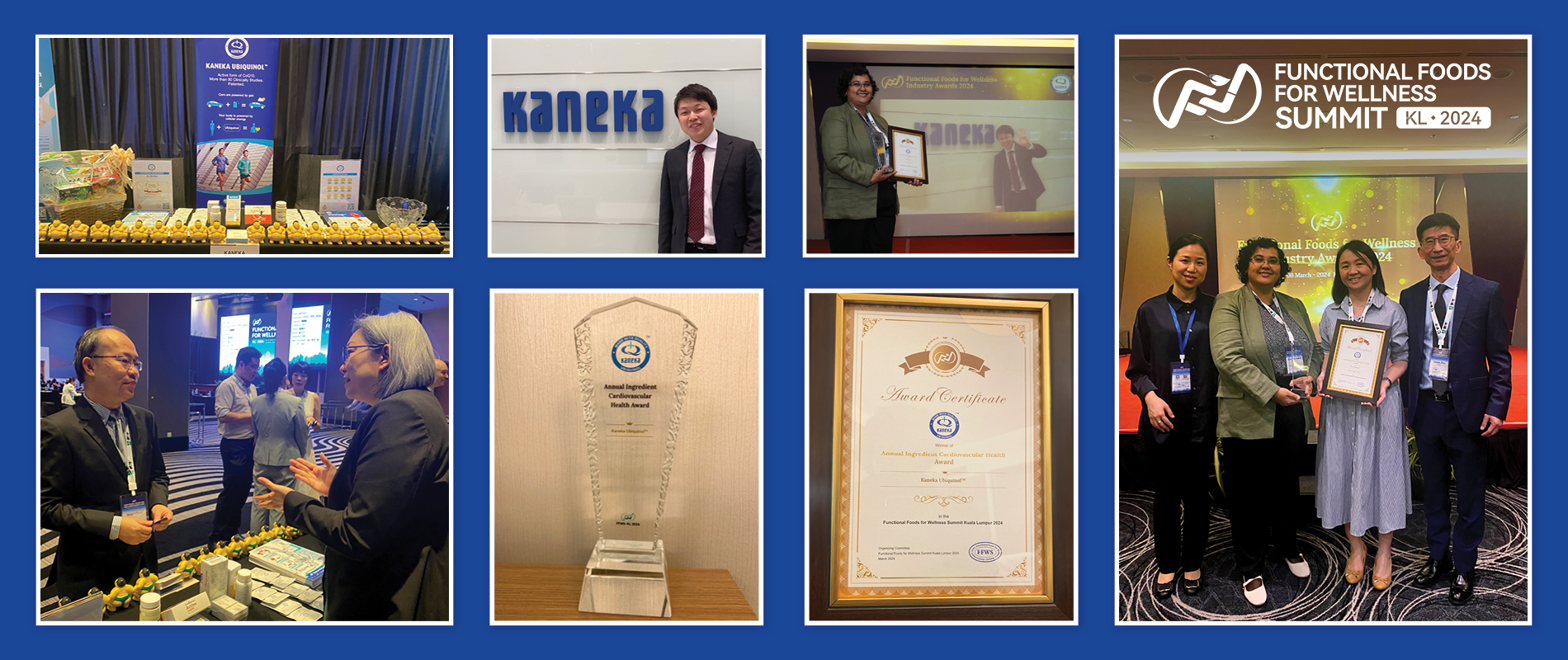
Kaneka Ubiquinol Wins Award at Functional Foods Wellness Summit (FFWS 2024)
Mar 2024Category: Ageing, Antioxidants, Awards, cardiovascular health, China, Cholesterol, chronic fatigue syndrome, complementary medicine, Conference, Conferences, COVID-19, Endurance, Energy, Fatigue, Fertility, Fitness, Health, Health Industry, Heart, Immunity, In The News, Kaneka, long covid, Lungs, Memory, Mitochondrial health, Nutrition, Print, Radio, Stress, Ubiquinol, vitafoods, Vitamins, wellnessRead More
Kaneka Ubiquinol at APP 2024
Feb 2024Category: Ageing, Antioxidants, cardiovascular health, Cholesterol, complementary medicine, Conferences, Energy, Fatigue, Fertility, Health, Health Industry, Heart, Immunity, Kaneka, Mitochondrial health, UbiquinolRead More
Functional Foods for Wellness Summit 2024 in Malaysia
Feb 2024Category: Ageing, Antioxidants, cardiovascular health, Cholesterol, chronic fatigue syndrome, complementary medicine, Conference, Conferences, Energy, Fertility, Health, Health Industry, Heart, Kaneka, Mitochondrial health, Nutrition, UbiquinolRead More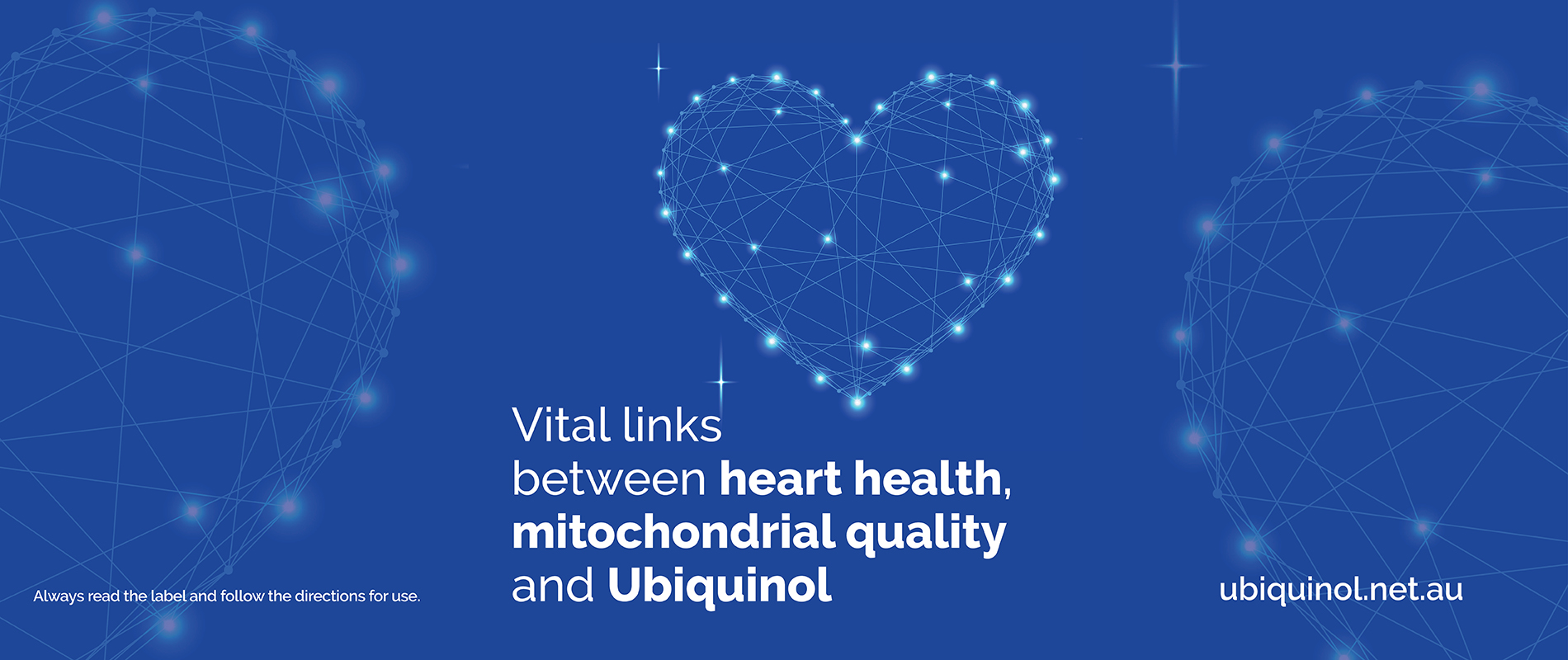
The Links to Mitochondrial Quality and Ubiquinol for Heart Health
Feb 2024Category: cardiovascular health, Cholesterol, complementary medicine, Energy, Health, Heart, Mitochondrial health, Nutrition, UbiquinolRead More
Ubiquinol Unveiled: Exploring Clinical Advancements in Cardiovascular Health with Pharmacist, Gina Koay
Feb 2024Category: cardiovascular health, complementary medicine, Health, Health Industry, Heart, Mitochondrial health, post pandemic, UbiquinolRead More